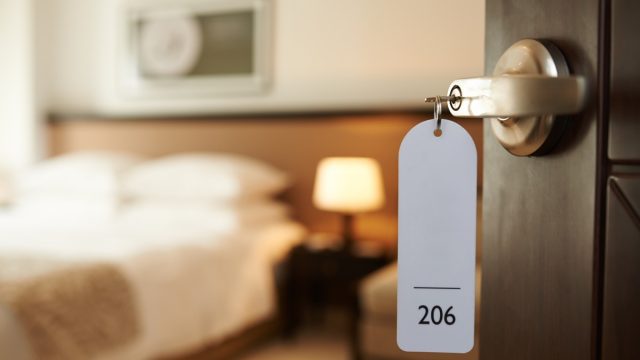
Germs are everywhere. Even though you can't see them, they're lurking on your phone, your doorknobs, and your kitchen sponge. But if there is that much bacteria in your home that you clean and look after, you can only imagine what nasty spots are hidden in your hotel room.
Yes, even though parasites are probably the last things on your mind when you're on vacation, they are absolutely there. To avoid any creepy crawlies, steer clear of these 13 germiest spots in a hotel room that are much grosser than you'd expect. So, read on—and don't forget to pack the Purell the next time you travel!
1
Alarm clocks
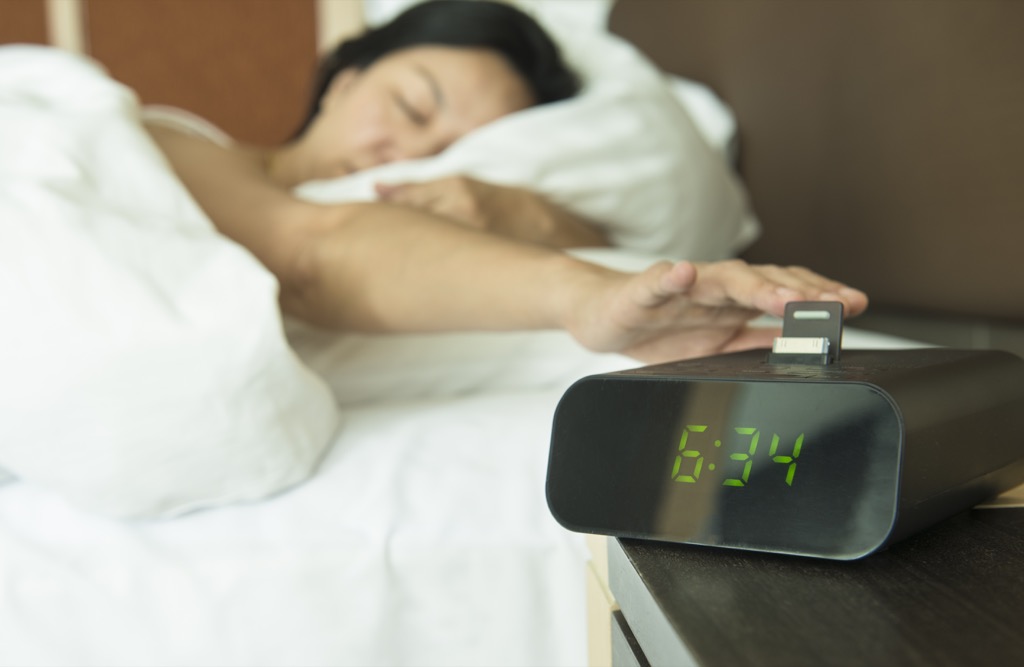
If you're going to set an alarm while you're on vacation, you might want to do so on your phone. "The snooze buttons can get very germy," says the "Germ Guy," Jason Tetro, a microbiologist and the author of The Germ Files.
In a 2006 study led by the University of Virginia Health System, researchers found that hotel alarm clocks are one of the top places that harbor germs and viruses—particularly rhinovirus, which causes colds.
2
Comforters
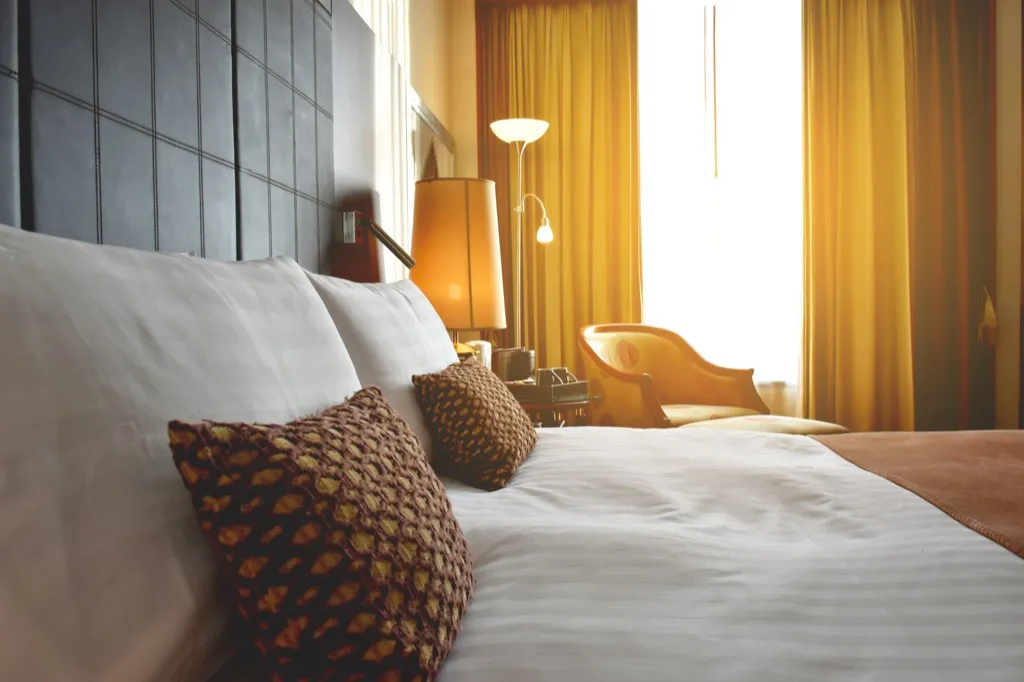
If you've been suspicious of hotel comforters and how often they're actually cleaned, your feelings are about to be justified: According to one report, in some cases, those comforters only get cleaned a few times a year. The number one thing that you spend most of your time on is actually one of the germiest spots in a hotel room.
"It doesn't get washed very often," Tetro confirms. "And people are going to lie on it or throw it on the carpet, so expect there to be quite a few microbes—including some that could cause skin troubles."
3
TV remotes
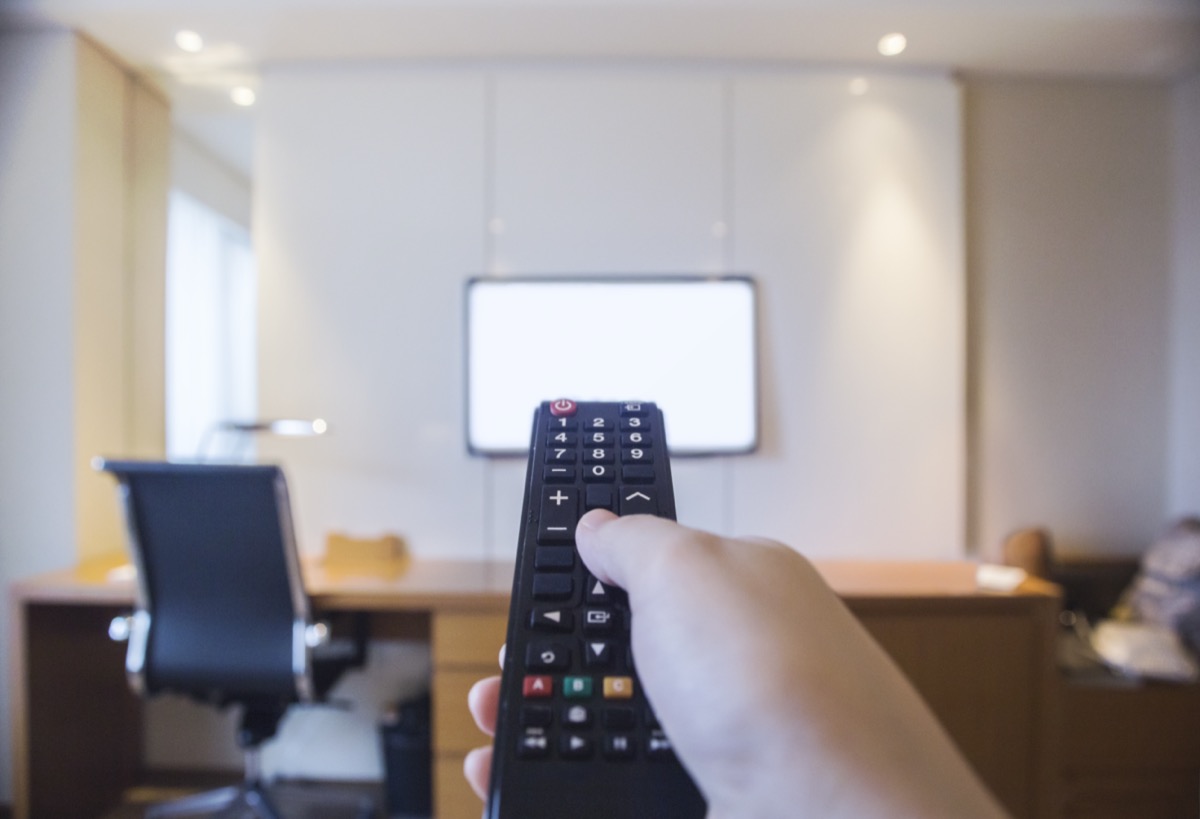
Watching your favorite shows on vacation sounds like a great way to relax, but it's definitely not the cleanest. In a 2012 study presented at the annual conference for the American Society for Microbiology (ASM), researchers found that the television remote is one of the most contaminated objects in hotel rooms. It is loaded with bacteria—fecal bacteria included.
4
Carpets
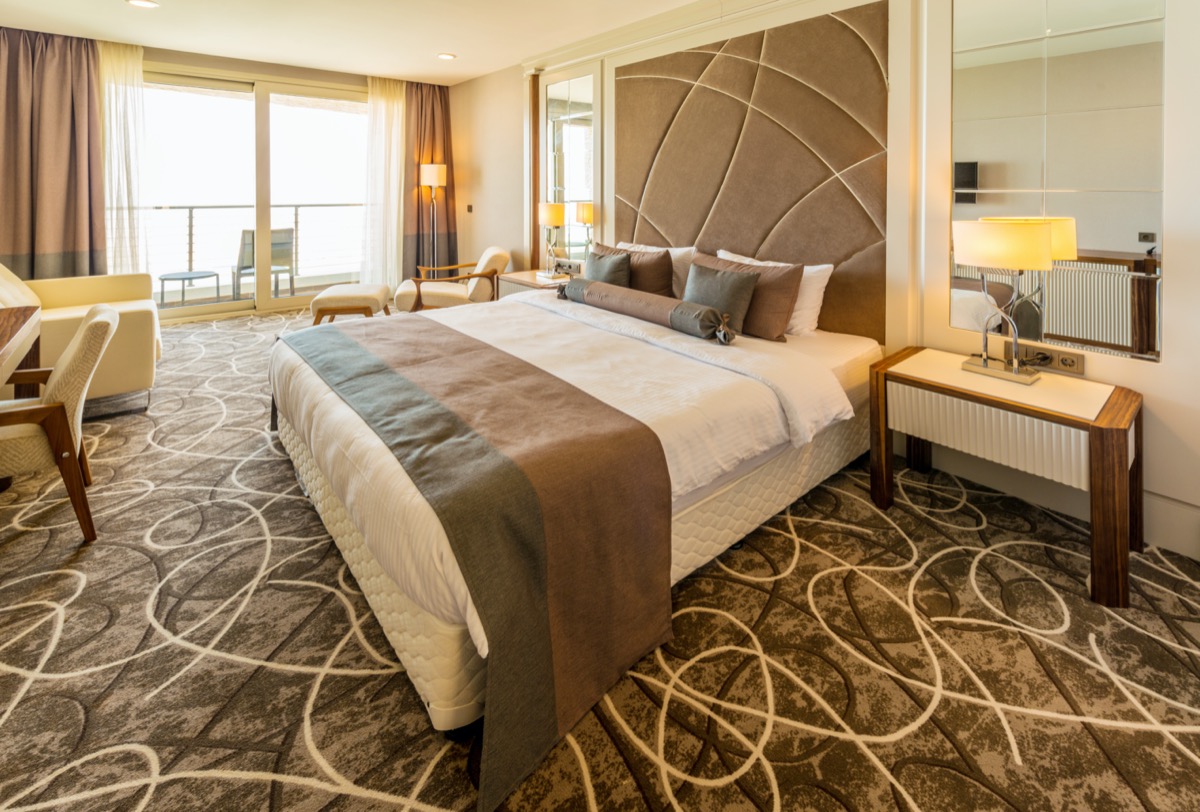
Sure, the carpet in your room might appear to be clean, but it isn't really. "Even though carpets are vacuumed, they're not disinfected," says Tetro. "That means the germs that don't get sucked up will be sitting pretty."
With everything that enters the room on people's shoes and suitcases, that hotel carpet becomes a hot spot for bacteria. So it's best to put those slippers to good use, just in case.
5
Coffee makers
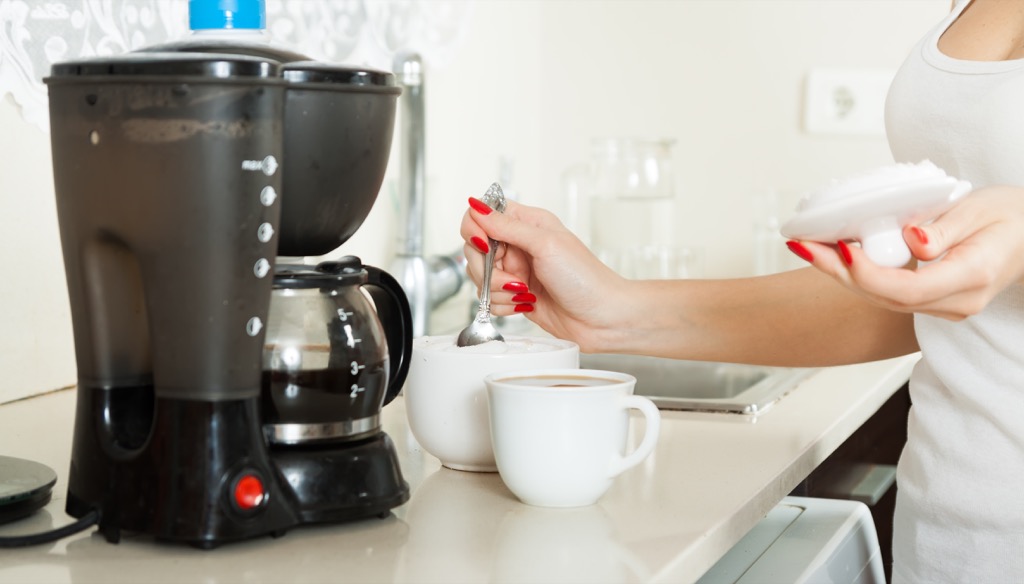
Hotel coffee makers have been found to harbor fungus and mold on numerous occasions, so it's best to skip that freebie and instead find a charming coffee shop to fulfill your caffeine fix.
After all, a 2015 study published in Scientific Reports sampled the coffee waste reservoirs in 10 different Nespresso machines, and researchers found many different bacterial strains within them, including disease- and infection-causing bacteria like bacillus and pseudomonas. While these were at-home machines, the ones found in hotel rooms—which are used by many more people and are rarely cleaned—are likely to have even more germs within them.
6
Telephones
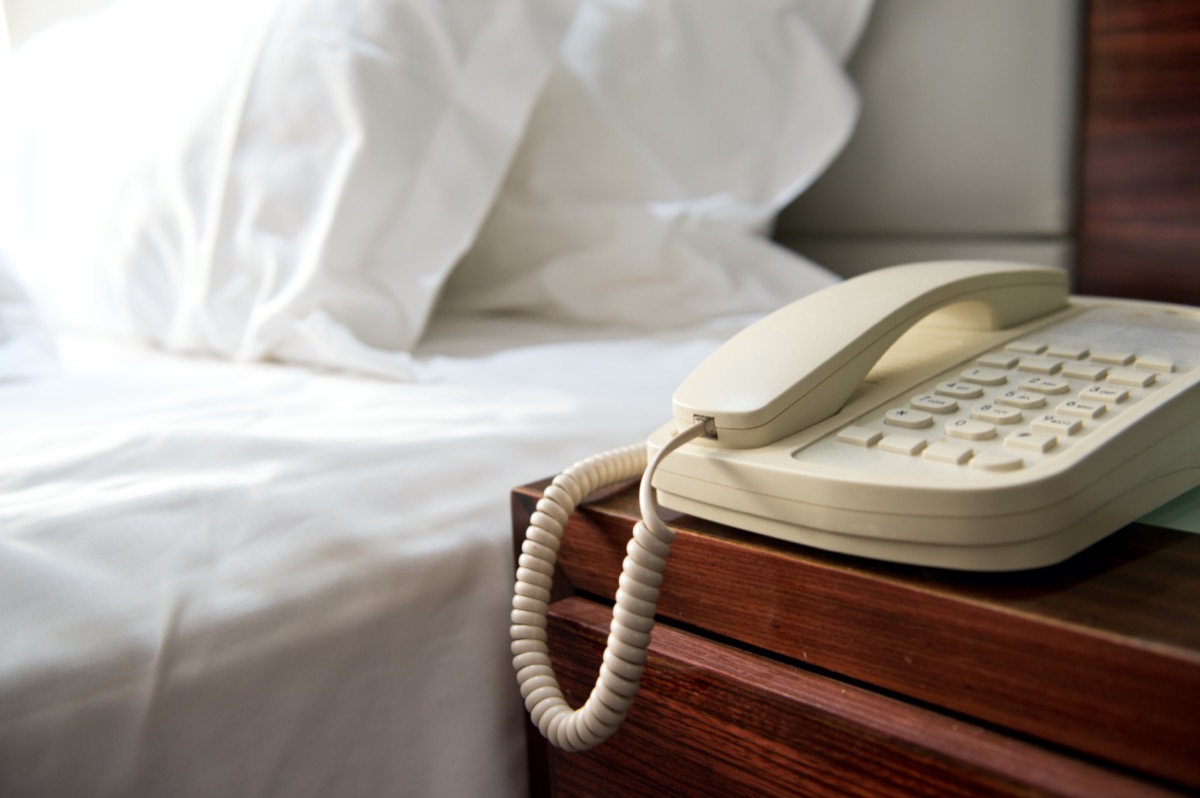
The next time you call room service, you'll be getting an unwanted side of germs. "While we may all have cell phones these days, you'll need to call the front desk at times, and this can leave germs behind," Tetro says.
A study conducted by Travel Math, which analyzed bacteria samples from nine different hotels, found that hotel phones contain about 4,300 colony-forming units (CFU) of bacteria and fungus per square inch. Specifically rampant on hotel phones were gram-positive cocci (which can cause staph infections and strep) and bacillus spp (which are associated with various respiratory and gastrointestinal infections).
7
Ice buckets
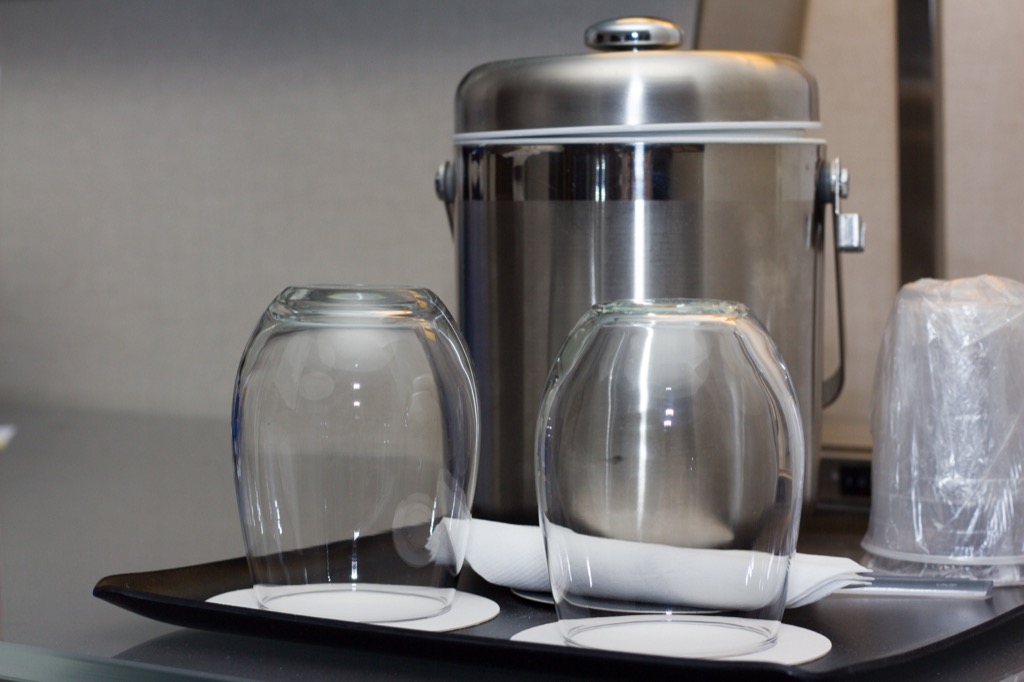
Even if ice water sounds refreshing, avoid using the ice bucket in your hotel room at all costs. They contain an impressive amount of germs, particularly because they're often used for things other than collecting ice—like as a place to vomit for a sick guest.
If that wasn't gross enough, an investigation conducted by public health inspectors in Minnesota found that because they're not required to be cleaned or sanitized in between guests, ice buckets are loaded with bacteria and are a hotspot for norovirus.
8
Light switches
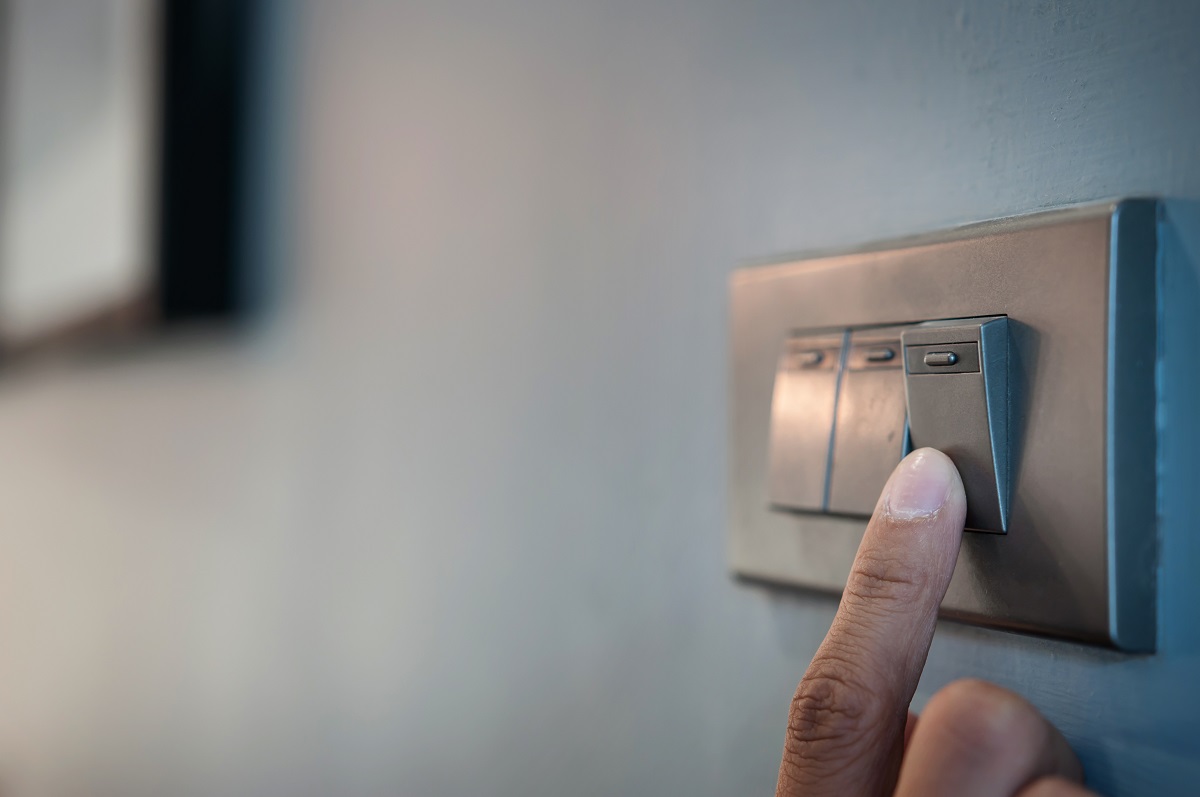
You might want to grab a Kleenex when you switch on the light in your hotel room. "Everyone touches it, and it usually doesn't get a thorough cleaning," Tetro says. To his point, a 2011 study out of the University of Houston found that the main light switches are among the germiest spots in a hotel room, containing 112.7 CFU of illness-causing aerobic bacteria, including streptococcus and staphylococcus.
9
Bedside lamps
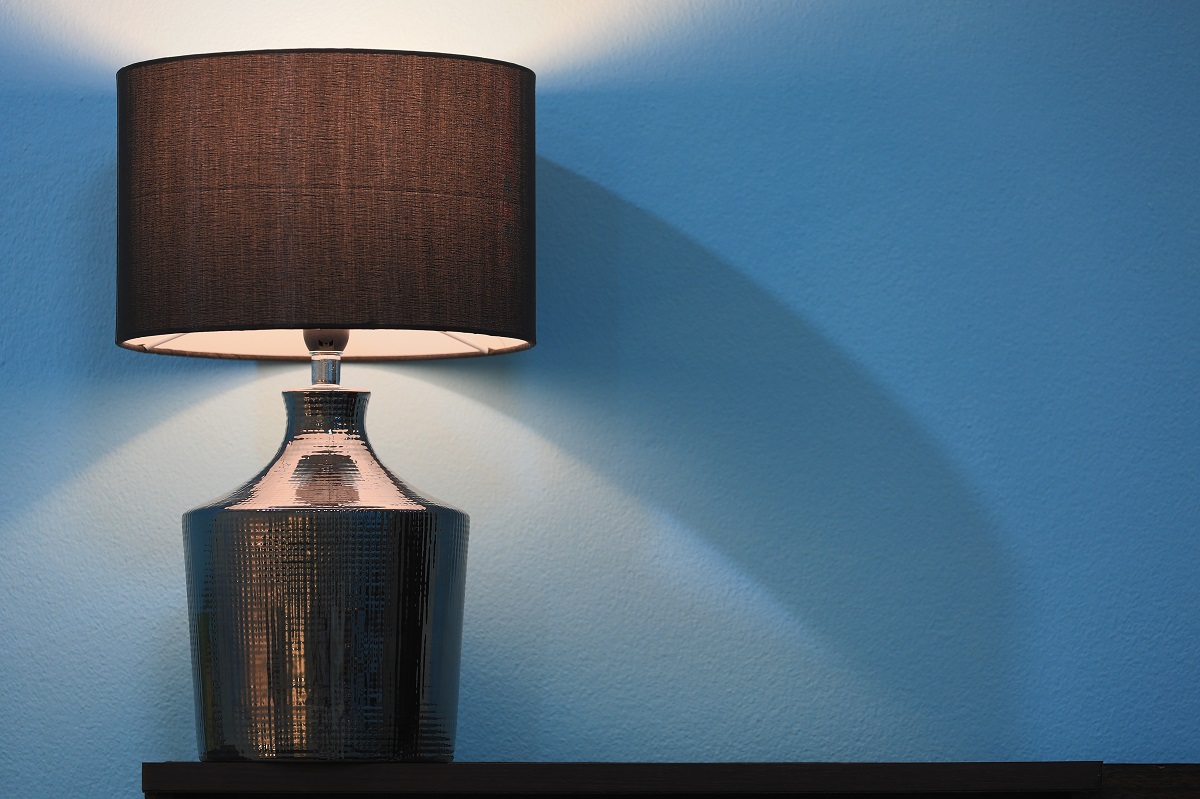
The last thing you do before closing your eyes at night is turn the bedside lamp switch off. But what's left lurking on your fingers until morning is a nightmare. "Although we hope people have washed their hands right before going to bed, this isn't always the case," Tetro says.
According to the 2012 ASM study, because of this lack of cleanliness, the bedside lamp switch often contains high levels of bacterial contamination (yes, including fecal bacteria).
10
Bathroom sinks
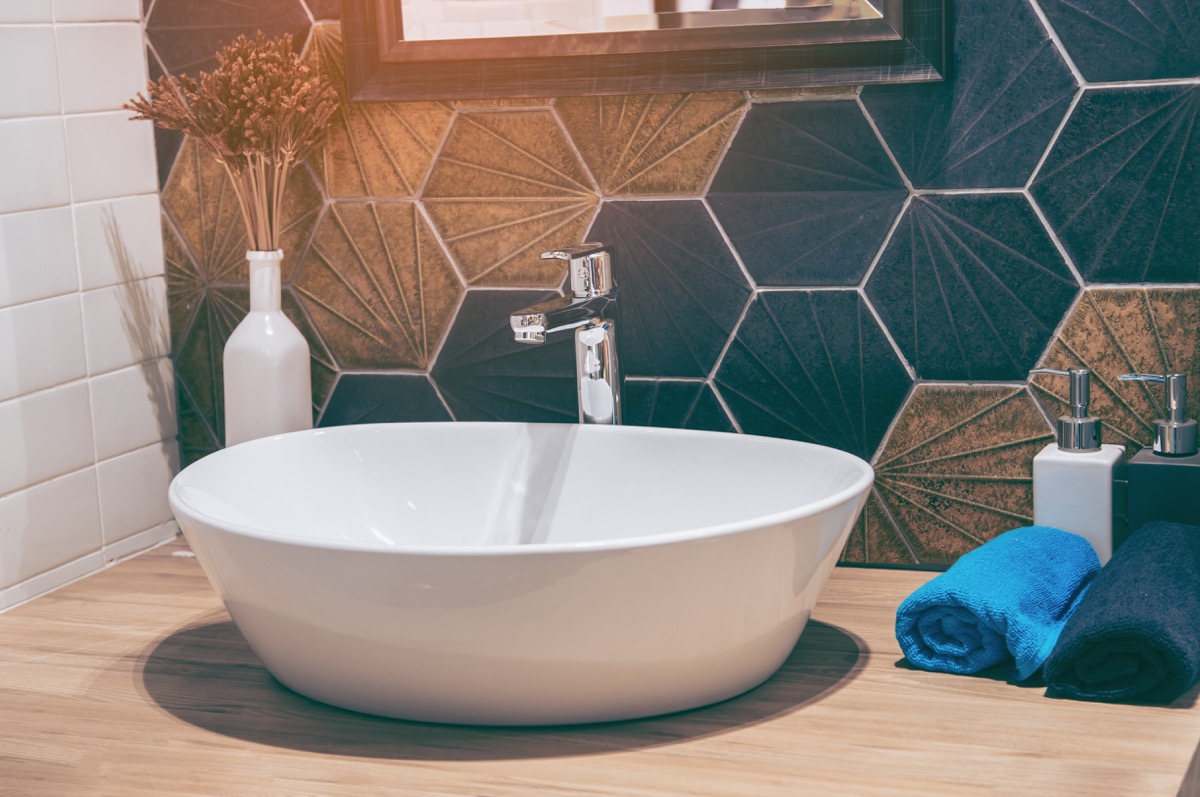
The bathroom sink is another hot spot for illness-causing bacteria, according to the 2012 ASM study. "The sink is where all the washed germs go, and unless properly disinfected with a clean sponge, those germs will stick around," Tetro says.
Most of the time, the sink only gets a quick scrub since "housekeepers clean 14 to 16 rooms per eight-hour shift, spending approximately 30 minutes on each room," Katie Kirsch of the University of Houston said in a statement of the 2012 ASM research. That's hardly enough time to banish all those germs!
11
Toilet basins
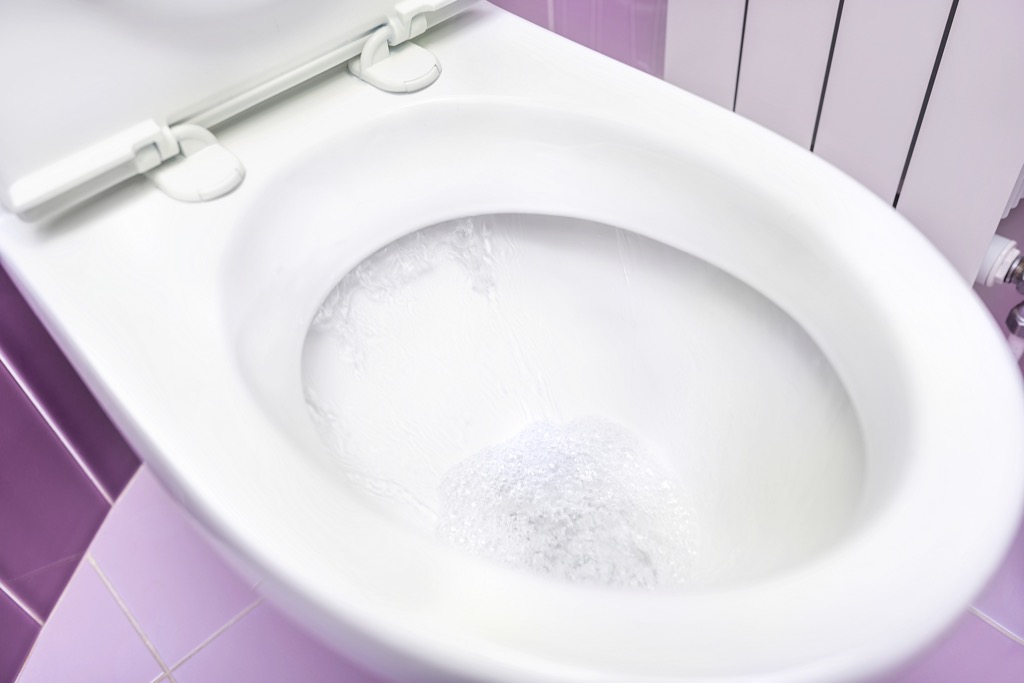
Household toilets aren't as germy as you'd expect. In fact, 2012 research from the University of Arizona found that your phone is 10 times dirtier than most toilet seats. But when it comes to hotel rooms, it's a different story.
"Unlike the home, the inside of the toilet may not get the appropriate attention that's needed for a proper clean," says Tetro. "It may not stink, but the germs will still be there."
12
Bathroom floors
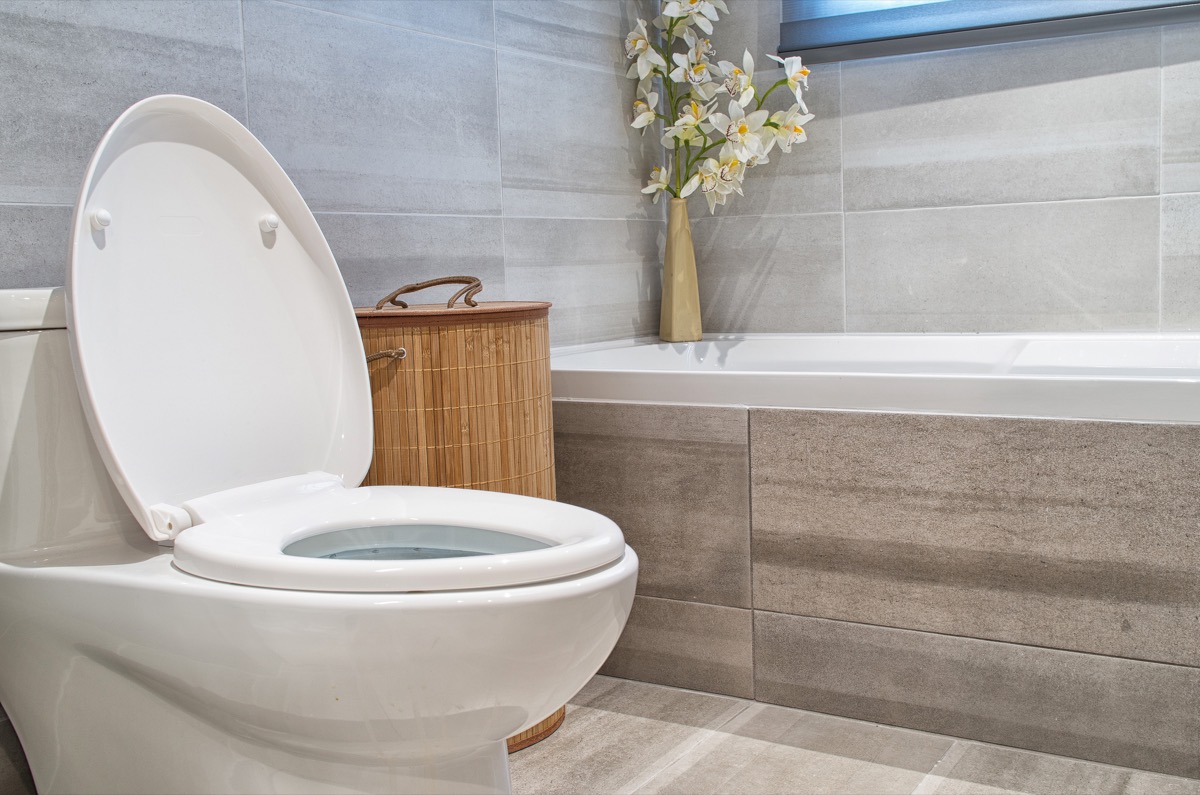
The bathroom floor might look clean, but in reality, it's one of the germiest spots in a hotel room, according to a 2015 study published in the International Journal of Hygiene and Environmental Health. "The bathroom floor is probably the germiest surface you're going to touch," Tetro says. "Although it may not be a big concern for your feet, if you have children or pets, you may want to keep the door closed."
13
Countertops
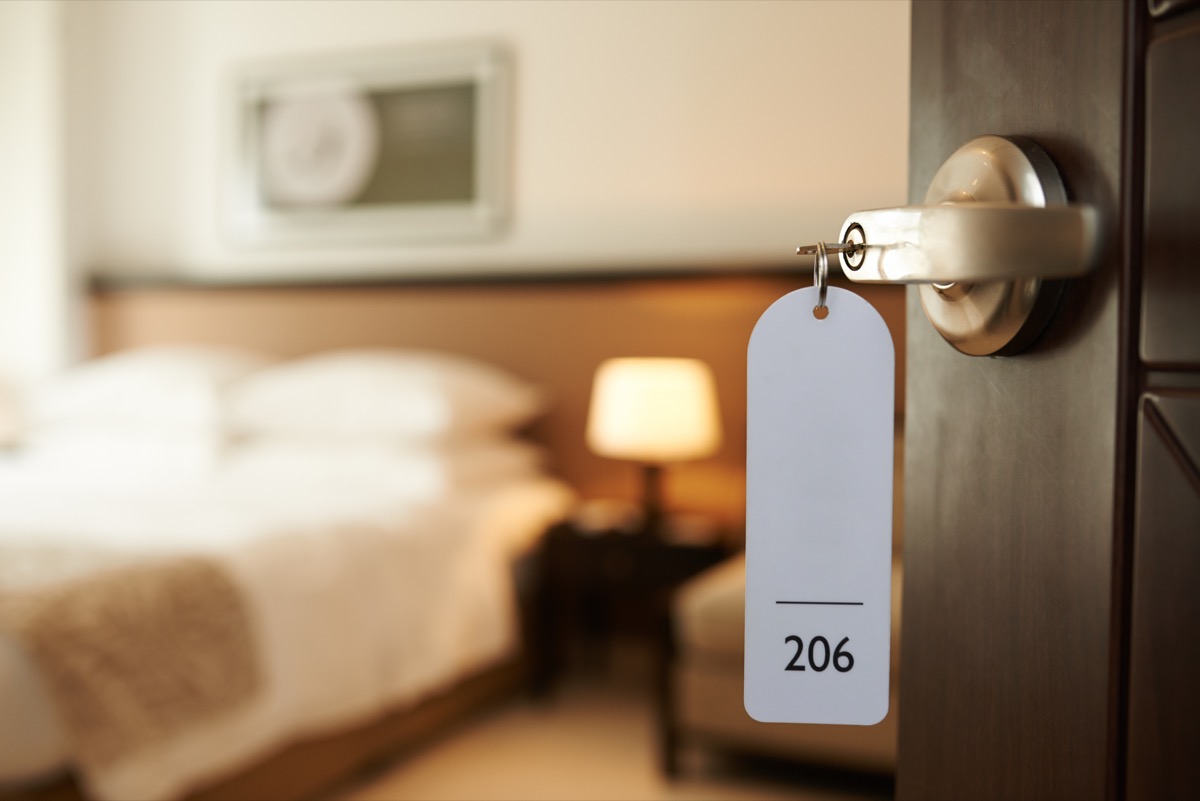
The surfaces in your hotel room might get dusted, but they probably don't get deep-cleaned. For example, the Travel Math research found that the bathroom counter has an average of 1.3 million CFU per square inch and the desk has 615,000.
"If I bring food back to the room, I wouldn't ever set it on a surface that's not covered because I don't want to contaminate it," says Michael A. Pentella, PhD, director of the State Hygienic Laboratory and a clinical professor at the University of Iowa. "You never know if the person who stayed in the room before you had something like norovirus."
But if you're already rethinking your vacation plans, don't fear: Pentella says there are simple ways to enjoy your hotel experience without letting germs ruin your trip. The first one being giving your room a thorough look before getting too comfortable. "Always inspect the room," he says. "I recently noticed something in my room was soiled, and the first thing I did was call the front desk. They sent someone up to take care of it right away."
With some precautions, your hotel experience will be a great one—even if you're sharing your room with a handful of unwanted germ roommates. And for more dirty details, check out the 17 Horrifying Myths About Hotel Rooms That Are 100 Percent True.





















